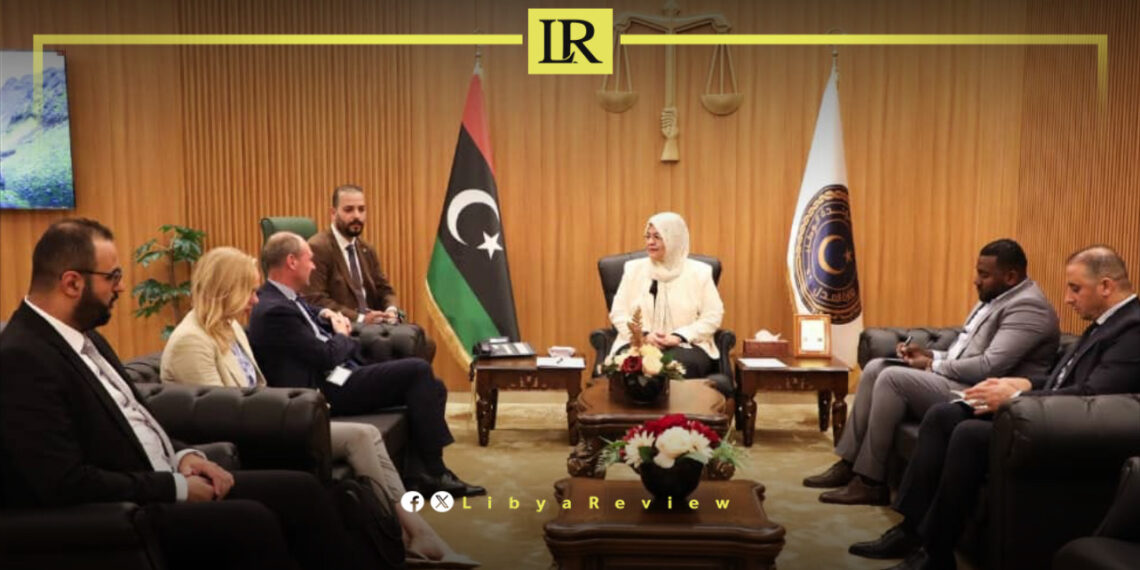The Ministry of Justice of the Libyan Government of National Unity (GNU) announced on Monday a new agreement to organize Dutch-led workshops focused on human rights.
These workshops will target members of judicial authorities, the judicial police, and correctional and rehabilitation institutions in Libya.
The announcement followed a meeting between Minister of Justice Halima Ibrahim and the Dutch Ambassador to Libya, Djoost Klarenbeek. According to the ministry’s statement, the minister emphasized that “the Netherlands is a key partner for the Ministry of Justice, with strong cooperation in the fields of rule of law and human rights protection.”
During the meeting, both parties discussed judicial cooperation and ways to strengthen it, as well as the training programs provided by the Dutch Embassy to support national efforts to promote and protect human rights and uphold the rule of law.
The agreement outlines future meetings between the two sides to design a comprehensive program of training sessions and workshops focusing on human rights.
These initiatives will specifically target members of judicial institutions, the judicial police, and correctional facilities. The discussions also touched on the importance of enhancing the rule of law and safeguarding human rights in Libya.
Libya has been in chaos since a NATO-backed uprising toppled longtime leader Muammar Gaddafi in 2011. The county has for years been split between rival administrations.
Libya’s economy, heavily reliant on oil, has suffered due to the ongoing conflict. The instability has led to fluctuations in oil production and prices, impacting the global oil market and Libya’s economy.
The conflict has led to a significant humanitarian crisis in Libya, with thousands of people killed, and many more displaced. Migrants and refugees using Libya as a transit point to Europe have also faced dire conditions.
The planned elections for December 2021 were delayed due to disagreements over election laws and the eligibility of certain candidates. This delay has raised concerns about the feasibility of a peaceful political transition.
Despite the ceasefire, security remains a significant concern with sporadic fighting and the presence of mercenaries and foreign fighters. The unification of the military and the removal of foreign forces are crucial challenges.


